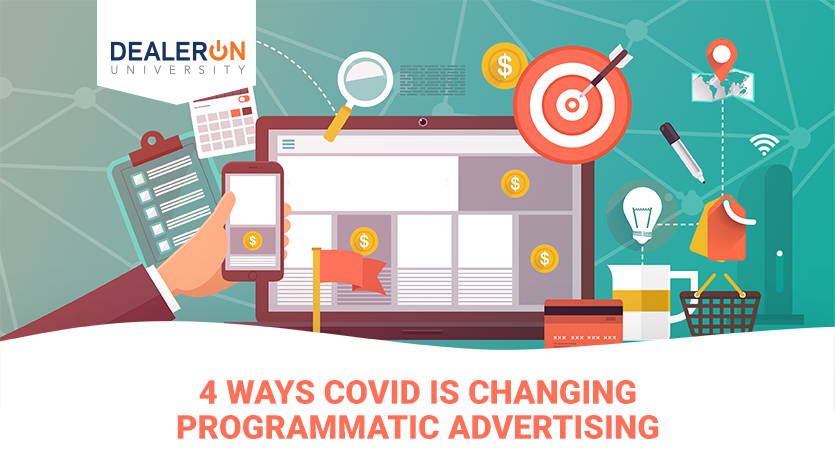

Programmatic advertising is a fast-growing sector in the industry for good reason: Why buy and sell ad inventory in real time when you can make a computer do it? And despite my original, Terminator-based objections to the process, it’s apparently completely safe and efficient. And as with everything else, programmatic advertising isn’t immune to the changes the pandemic has wrought in every corner of our lives. So, before you leap into programmatic advertising for your dealership (or re-up your current contract), have a look at these four ways COVID is changing the industry.
1. Who are the top buyers?
Here’s a hint: they’re not the same ones from before. The easiest ways to think about this are to ask the question: which industries were hurt most by the pandemic? If you said “travel,” congratulations, you’re right. Meanwhile, political buys have been going up, although these are expected to dip now that the election is behind us.
In addition, the changes are not universal across industries. Ad buys are down in entertainment news because there’s less of it to report on with production largely being shut down. Meanwhile, regular news consumption and therefore ad buys are up.
2. Bid density is all over the place
Because programmatic advertising is by its nature automated, the price often comes down to bid density. Fluctuations in density can lead to especially high or low buys. Whether you call these fluctuations artificial depends both on your definition of the word and your appreciation for irony.
What this means practically is that though news consumption for people stuck at home increased almost immediately, at first companies pulled back from advertising over content about the pandemic, despite that being the most popular kind of news. So there was an initial spike, followed by a dip, and now things are starting to even out. As awful as the pandemic has been for everyone, it has become a normalized part of existence in 2020. In other words, brands are fine advertising alongside news about the virus.
3. Buyers and sellers need to talk
This is a counterintuitive point, considering we’re discussing computers making ad deals with one another, but there are humans behind it all. The communication is to reassure buyers and sellers that the market is looking good for what they need. This in turn can lead to alterations in the programmatic code, flagging certain content for ad buys and the creation of whitelists to specifically target ads.
The point is that just because a significant portion of your ad budget is automated, that doesn’t preclude the human touch. Keep the lines of communication open and you’ll be better positioned to find homes for your ads.
4. Third-party data will be harder to come by
While it’s unlikely that your dealership has a special in with Facebook or Google, you probably have benefitted at least a little when it comes to their harvesting of data. The whole purpose there is to target consumers with ads directly related to their profiles, so it helps with ROI even If it does raise some questions about privacy.
In any case, harvesting from these sources is due to become more difficult. Essentially, first party data is going to become king. This is just another kind of lead, and you know how to work with those. Seek out the marketplaces where your customers shop, and target your ad buys there.
Programmatic advertising is undergoing a period of change. It’s still a useful tool, but remember that it is exactly that: a tool. You don’t leave a hammer alone and hope that it builds you a shed. You have to put some work in if you want to get the most out of it.


